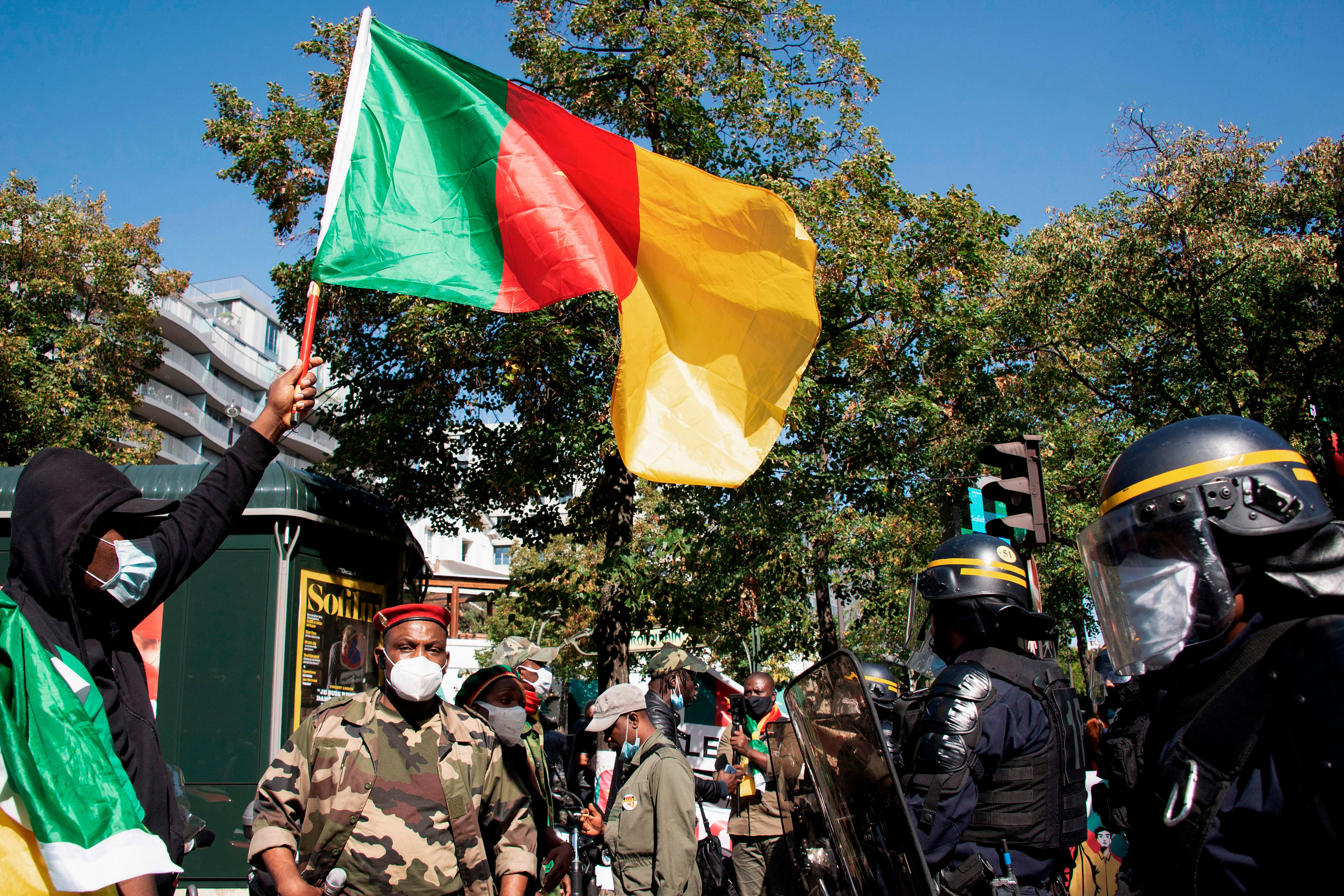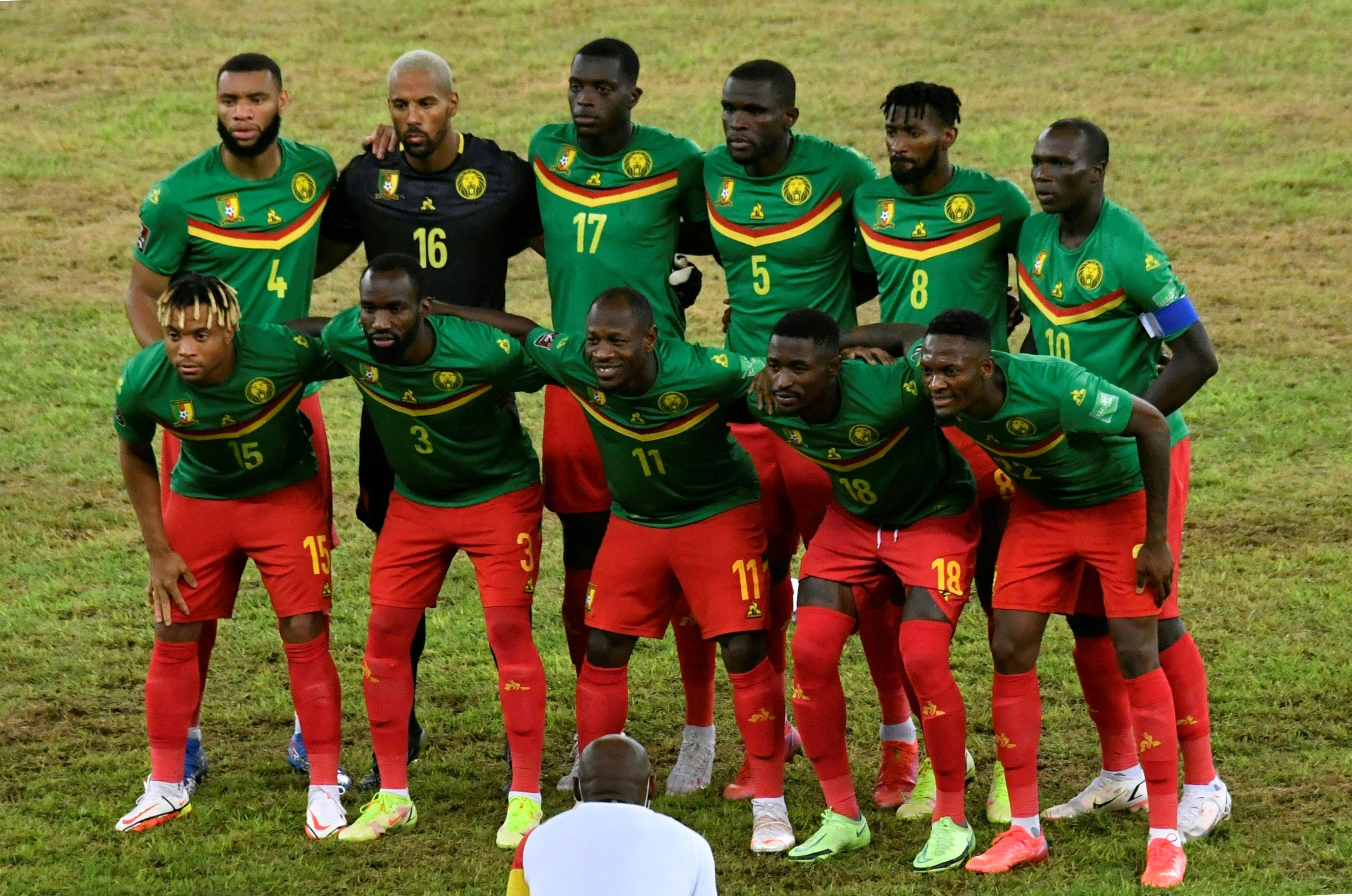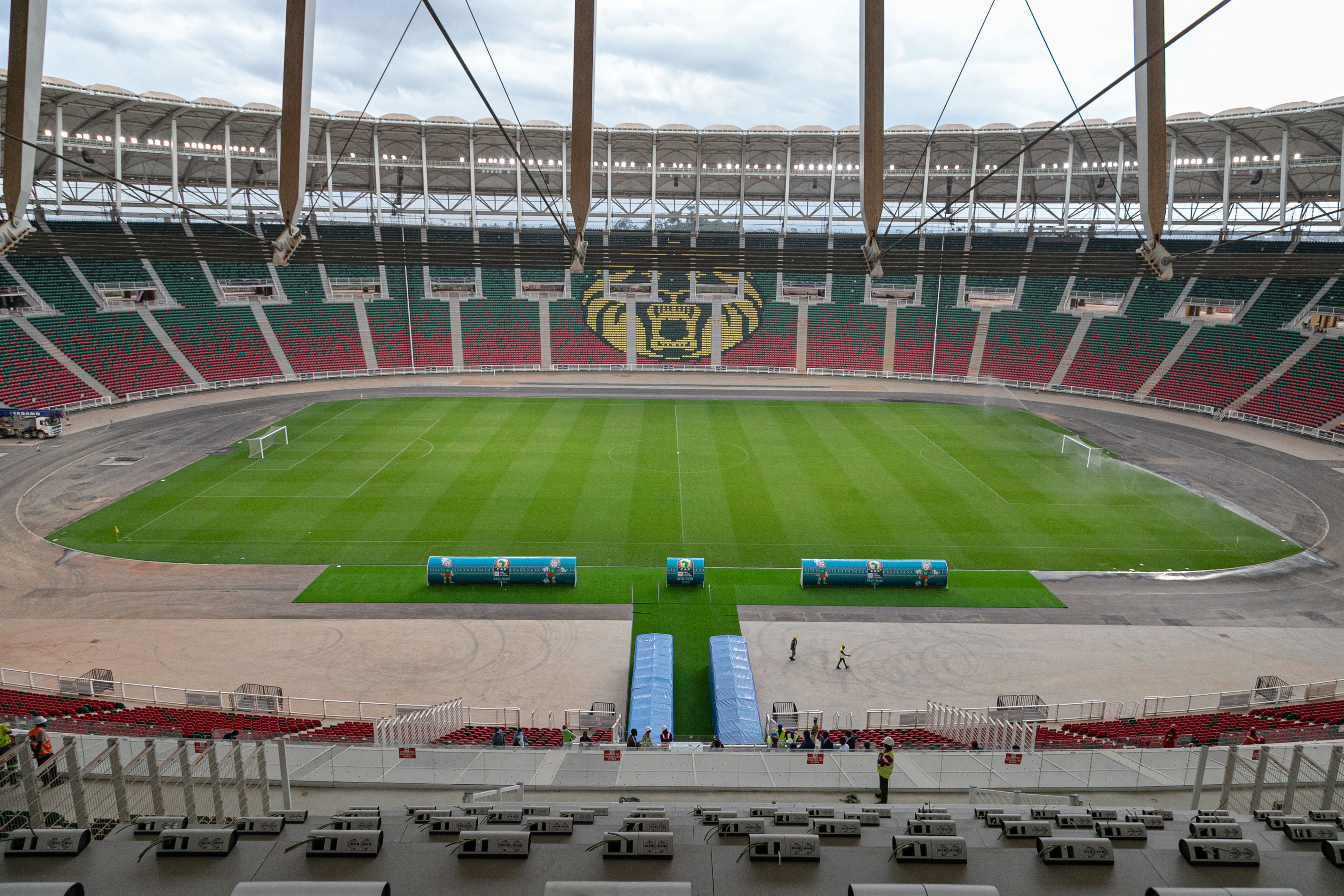Cameroon’s civil war should dominate Afcon talk – not who your Premier League team will be missing
A civil war has been raging in the country since 2017, something infinitely more important than European clubs losing African players for a month, writes Melissa Reddy


The picture was of Mola, mascot of the Africa Cup of Nations (Afcon), wearing a bullet-proof vest and sandwiched by a sea of heavily armed forces as it toured the conflict-rife town of Bamenda in northwestern Cameroon.
The responses to the jolting viral image from those living through that hellish reality should have been the focal point in discussions about the upcoming tournament.
“Our government cares more about a mascot than us.”
“Who really has time for football given the death, destruction, and misery our people face?”
“Mola means brother, friend, elder, uncle… a friendly term. What is happening here in Cameroon is hostile. It is war.”
Amid the self-interest of the European Club Association and its disrespect towards Afcon, you may have missed the crucial headline: the host country has been embroiled in a civil war since September 2017.
Innocent lives – like five-year-old Caro Louise Ndialle and eight-year-old Brandy Tataw – have been lost as separatists from English-speaking areas of Cameroon destructively fight against marginalisation by the French majority under President Paul Biya’s leadership.
This fact seems to have drowned among the flood of articles debating how Liverpool could cope without Mohamed Salah and Sadio Mane, or if Chelsea are capable of sustaining a title challenge sans Edouard Mendy.
The self-serving attempts to tank Afcon and the whining about its effects on Fantasy Premier League teams has overshadowed separatists violently enforcing a boycott on children’s education since 2017, with armed gunmen attacking a school on 24 October last year, killing seven pupils and injuring 13.
All this in the name of independence for the anglophone southwest and northwest regions, named Ambazonia.
Through the push for a postponement or cancellation of Africa’s premier competition, with Covid as the cover so it can ridiculously bow to the European schedule, it probably evaded attention that government forces and armed ethnic Fulani murdered 21 civilians, including 13 children and one pregnant woman, last Valentine’s Day.
African football executives have been furiously battling damaging Eurocentric “agendas”, but that doesn’t absolve them from ignoring the crimes being committed against their own people in the process.
FYI, it is nearing the one-year anniversary of a teenage girl being kidnapped and having her finger chopped off with a machete. Her crime? Going to school.
The suffering occurring in Cameroon hasn’t even been a sideshow as competing interests have coloured the build-up to the Africa Cup of Nations.

Mentions of the civil war in England have largely been used in two ways: to understandably question the safety of players reporting for duty, and by tabloids for typically sensationalist reporting to further the portrait of anarchy on the continent.
Even the first of those mostly has the hidden aim of canning the tournament. It is utterly baffling that there has been no lens trained on the problems in Cameroon itself, especially given the spotlight – quite rightly – on Qatar ahead of the World Cup.
Activists bemoan a “mute approach based on indifference” to a crisis that started in 2016 as peaceful protests by lawyers and teachers demanding linguistic reforms. It has morphed into a war killing thousands while displacing over a million people.
R Maxwell Bone, an expert on Cameroon’s “forgotten civil war”, noted that the government has recently “taken its disproportionate and heavy-handed approach beyond its own borders, particularly into Nigeria”.
That country is home to over 60,000 refugees from the conflict and writing in Foreign Policy magazine, he highlighted “anglophone Cameroonians have been facing unprecedented levels of harassment and intimidation at the hands of Nigerian authorities, including extrajudicial deportation to Cameroon, often resulting in being imprisoned and tortured once being handed over.”
Yet Cameroon’s government, which tried to airbrush the burning of villages and blamed separatists for atrocities it later admitted to, has faced no public pressure from the Confederation of African Football (CAF).
Patrice Motsepe, the CAF president, joined the country’s head of state in Yaounde on 22 December for “a very constructive and fruitful meeting”.
It was the latest opportunity to engage Biya, Cameroon’s leader, on the prospect of a ceasefire during Afcon building towards permanent peace, as well as the reform of a penal code that punishes “sexual relations between persons of the same sex” with up to five years in prison. Anyone believed to be LGBT+ tackles regular harassment, assaults, and arrests.

Yet the meeting drilled in on “Covid-19 global best practices” and supplied a photo op for Motsepe and Biya posing with the Afcon ball.
Chris Roberts, chief of African Access Consulting and a researcher on the crisis in Cameroon, offered a caption co-signed by locals: “Note how much the president [Biya] takes this ball more seriously than the lives of millions affected by his kleptocratic, venal, and tired regime.”
The meeting ignored critical issues like shifting games from Limbe, within the conflict zone, which the Ambazonian National Self Defence Council warned will be targeted.
“The freedom of the people of Ambazonia is far more important than any nonsense in the name of the Africa Nations Cup,” said Langmi Nestor, its spokesman.
Matches in Bafoussam and Douala are also under threat. Cameroon’s defence minister, Joseph Beti Assomo, issued a series of anti-terrorism simulation exercises at stadiums in recent months.
He circled the risk to life given the separatist movement in the anglophone regions, Boko Haram insurgency in the Far North Region, and other security challenges to prime the army “for any eventuality” as this “African football festival will be held in a context marked by tension”.
It is staggering that so much has been invested in preventing violence and pressing ahead with the tournament, yet no faction has plumped for the open goal of peace.
That opportunity was horrendously missed, but Afcon will at least provide a much-needed platform for impactful – pretty please, peaceful – activism in front of a global audience.
There is a chance for the forgotten civil war to become front and centre, for Cameroon’s people to matter.
The Africa Cup of Nations should never be superseded by club competitions or bow to European sentiment. Could you ever imagine the Euros being altered to suit the domestic game if it came to it, rather than vice versa?
Qatar’s World Cup, lest we forget, is forcing league seasons to bend to its will.
Afcon, however, should not be more important than African lives, than the safety and peace of the continent’s own.
Cameroon should invite the type of relentless heat Qatar is under. What is happening there “is hostile. It is war.”
Join our commenting forum
Join thought-provoking conversations, follow other Independent readers and see their replies
Comments
Bookmark popover
Removed from bookmarks